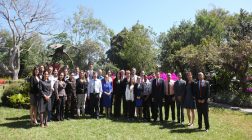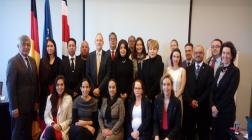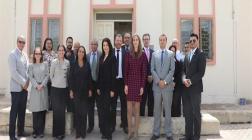BAFA organizes the Initial Visit and Elaboration of the Roadmap of the European Union Partner-2-Partner Export Control Programme for Arms-ATT (EUP2P ATT) in Costa Rica
As part of the EUP2P ATT project, the purpose of the mission was to conduct the initial visit to Costa Rica and elaborate the roadmap in support of the Implementation of the Arms Trade Treaty. The German Federal Office for Economic Affairs and Export Control (BAFA) held a national seminar to raise awareness of the ATT among law enforcement agencies and support them in their risk analysis and identification of arms, ammunitions and parts and components. UNLIREC was invited to participate and provide regional insights on ATT and its implementation challenges. The two-day meeting brought together 30 representatives from different institutions, including the Ministries of Public Security, Foreign Affairs, Presidency, Health, Agriculture, Commerce, Intelligence, Customs, the General Attorney Office, Police and international experts. Five areas of ATT-related assistance were identified by Costa Rican authorities: 1. Need to create and harmonize a national control list (e.g. dual use items); 2. Legal harmonization to integrate ATT obligations; 3. Inter-institutional cooperation; 4. Licensing processes; 5. Identification training on arms, ammunition, parts and components for operational personnel in customs hot spots.
The goal of the European Union Partner-to-Partner (EU P2P) Export Control Programme for Arms-ATT, formerly referred to as the EU ATT Outreach Project (EU ATT-OP), is to support the early entry into force and effective implementation of the ATT. Upon request, the project will support a number of States in strengthening their arms Transfer controls systems with a view to being able to implement the ATT. The project also aims to increase awareness and ownership of the ATT at national and regional levels and therein contribute to its universalisation. The EU P2P has three different components: 1) Tailored National Assistance Programmes; 2) Ad-hoc Activities; and 3) Regional Seminars. National assistance programmes are developed in close cooperation with partner countries. Key elements of national assistance programmes are: an initial needs assessment visit; inclusive roadmap development; and, practical support follow up activities. The project is implemented by BAFA and co-funded between the EU and the Government of the Germany.



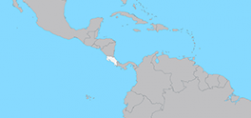


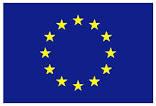
Federal Office for Economic Affairs and Export Control (BAFA)
Division 225
Address: Frankfurter Str. 29 – 35, 65760 Eschborn, Germany
Phone: +49 6196 908-2602
Fax: +49 6196 908 11-2602
Email: att@bafa.bund.de
Website: http://www.bafa.de/bafa/en/
European External Action Service
Directorate for Security Policy and Conflict Prevention
B-1049 Brussels
Email: NonProliferation-Disarm@eeas.europa.eu



